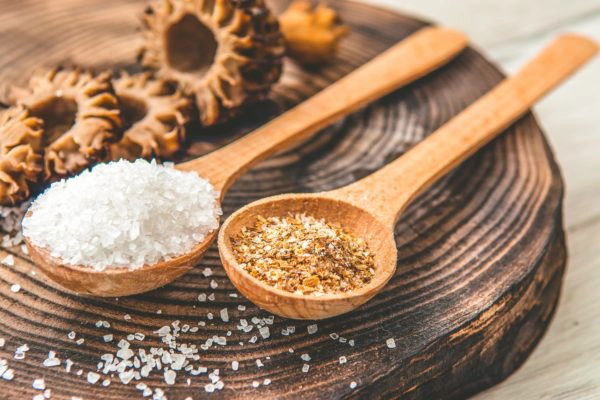
To understand gut health, you need to understand what’s going on in your gut.
Gut bacteria is a series of microbiomes that live in your digestive system. They perform a series of complex functions that go beyond just digesting food.what is gut health?
Much of our physical, mental, and emotional health is tied to the inner workings and health of your gut microbiome.
This is one reason that diet is important for maintaining our health. Check below for ways to improve and maintain your gut health.
how do you know if you have bad gut bacteria?
There are several signs that could indicate poor gut health. A good starting point is to listen to your body closely and take note of any bodily changes or any new symptoms that arise with certain meals or food.
TROUBLE SLEEPING
Serotonin is largely produced in the intestine and can affect mood and sleep. Often the result from poor gut health, insomnia and other chronic sleep disturbances that lead to fatigue are due to your gut’s inability to produce serotonin.
FOOD INTOLERANCE
Not to be confused with a food allergy, food intolerance is difficulty digesting certain foods. Food intolerances often cause gas, bloating, nausea, and other minor stomach discomfort.
It is always a good idea to let your doctor about these symptoms after eating certain food to confirm it isn’t a food allergy.
STOMACH DISCOMFORT
Typical symptoms of stomach trouble that are the result of bad gut health are diarrhea, constipation, gas, and bloating. These will contribute to difficulty with digestion.
SWEET TOOTH
When whole foods are put on the back-burner, but a diet full of added sugar and processed foods is the go-to, an increase in unhealthy gut bacteria is likely.
The reduction of good bacteria can cause sugar cravings that cause further bacteria damage.
UNWANTED WEIGHT GAIN
When your gut bacteria is out of balance, it inhibits your body’s ability to absorb nutrients, sometimes causing issues with blood sugar and fat storage.
The digestion of different foods in the body is greatly influenced by gut bacteria. Weight changes that occur without a change in diet or exercise is sometimes a sign of bad gut bacteria.
SKIN BLEMISHES
Commonly called the “gut-skin” axis, it’s the connection between gut bacteria and its external effect on your skin. Gut imbalance and the overgrowth of bad gut bacteria can cause skin inflammation and irritation likeatopic dermatitis, more commonly known as eczema.
DECREASED IMMUNE FUNCTION
One of the more serious effects of poor gut bacteria are autoimmune conditions. There is more research that has shown a correlation between poor gut health and multiple conditions that include colon cancer, lupus, and tuberculosis.
BAD BREATH
Bad bacteria that lives in your gut and often makes its way up to the area between your teeth and gums. These microbes also live on your tongue and cause breath odors. A balanced gut can help reduce bad breath.
MOOD CHANGES
Bad gut health inhibits the body’s nutrient absorption, it decreases our nutrient levels and our ability to create and utilize certain hormones and vitamins like vitamin D, dopamine and serotonin (both produced in your gut).
These contribute to mood shifts, depression, anxiety and other mental changes when there are decreased amounts in the body.
DISEASE
Certain bacteria penetrate the mucus lining of the colon and lead to type two diabetes. Others may contribute to other health issues like chronic kidney disease, inflammatory bowel disease, and colon cancer.
Gut health is not just important for food digestion, but overall health.

what foods should i avoid?
Diet can make or break your gut health. To avoid many of the symptoms listed above, I have listed a few foods you should avoid or eat in limited quantity.
SUGAR AND ARTIFICIAL SWEETENERS
A high sugar-diet (artificial sweetener, refined sugar, or naturally occurring in food) might be detrimental to your gut health by reducing gut function and altering the composition of gut bacteria.
PROCESSED FOODS
Most processed food contain additives (emulsifiers) that keeps food bonded together, creates a smooth texture, and extends its shelf life.
These additives can damage gut bacteria, sometimes resulting in colitis and other disorders.
WHOLE MILK
Whole milk does not negatively affect everyone. But sometimes, evidence has shown changes in the composition of gut microbes. This change affects glucose metabolism and lipids. Alterations in gut microbiome composition could affect host lipids and glucose metabolism.
RED MEAT
Red meat can impact your health by promoting growth of bacterial strains. Trimethylamine N-oxide is the compound used to digest nutrients in meat.
This compound can increase chances of stroke and heart attack.
GLUTEN
Food sensitivities and celiac disease can affect how gluten is processed in the body. Studies have shown that the negative effects of gluten affect stomach bacteria and can cause bloating, irritable bowel syndrome, etc.
EXCESSIVE ALCOHOL
Bacterial microbiome changes with high alcohol intake. Liver disease is one of the more severe results of gut bacteria affected by chronic high alcohol use.
FOOD THAT CONTAINS ANTIBIOTICS
Commercially grown food in large quantities often contains antibiotics.
Dysbioses and other gastrointestinal dysfunction caused by antibiotics likely influence a variety of gut and intestinal dysfunction, including inflammation.
FOOD HIGH IN GLYCOALKALOIDS
Potatoes, eggplant, tomatoes, and bell peppers are food with glycoalkaloid have shown to cause inflamed intestines and leaky gut syndrome by damaging gut bacteria.
UNFILTERED WATER
Filtered water is best because of the amount of chlorine and other substances found in some tap water.
Chlorine can kill gut bacteria that causes gut dysfunction. There is also limited research that shows a possible link to colorectal cancer.

foods and supplements that help with gut health
There is a large of variety of food and supplements that will help kick-start and repair your gut health. I’ve provided a short list of a few foods and supplements that work wonders and grow good gut bacteria.
KOMBUCHA
The probiotic power of Kombucha tea can help restore healthy gut bacteria.
The polyphenols in the tea can assist with reducing gut inflammation. It’s also an antimicrobial and can fight bacteria growth.
KEFIR
This yogurt usually contains multiple strains of live bacteria that assist with improving gut health. It has been shown that kefir can improve digestion of those who consume it on a consistent basis.
JICAMA
This fiber rich root vegetable is great for gut health. One cup of raw jicama provide 6 grams of fiber and vitamin C. Fiber is ideal for maintaining gut health.
APPLE CIDER VINEGAR
ACV is beneficial to gut acid because it assists the body in creating hydrochloric acid that enables the body to digest fats, proteins, and carbs. It can also help relieve some symptoms of IBS.
BONE BROTH
Stock created from slow cooking beef or chicken bones and marrow, L-glutamine is a nutrient found in bone broth that assists with improving gut lining and health and reduces histamines. Symptoms of leaky gut and IBS improve after consuming bone broth.
KIMCHI
Fermented foods like kimchi offer high amounts of probiotic that improve gut health. This can contribute to better digestion, reduce constipation, improved immune system and skin.
VITAMIN D3
This supplement can create more diverse gut bacteria that keep bad bacteria at bay. It can also assist with relieving gut inflammation and glucose mobilization.
ZINC
Zinc supplements can assist with relieving symptoms of bloating and gas. It also improves digestion, strengthens and protects your gut lining. Consistent use can create long term results.
ALOE VERA
The antimicrobial properties of aloe taken internally assist with reinforcing the gut barrier, relieves inflammation, and constipation.
The vitamins, amino acids, and proteins packed in aloe make it an effective food source.
TURMERIC
Turmeric root supplements aid the stomach in secreting mucus that protects against gastric acid. Turmeric also provides anti-inflammatory properties, aiding good gut health.
It contributes to relaxing the stomach and intestinal muscles, allowing food to pass more easily through the digestive tract.

how do you know if you have good gut health?
Signs of good gut health come in many forms. Some signs are visual, while others require a medical professional for assistance. Either way, I’ve provide a few ways to check the status of your gut health.
LAB TESTS ARE GOOD
If you’ve sought medical attention, lab tests are a great way to check on your gut bacteria. A few tests that are helpful: stool test, the SIBO breath test, intestinal permeability screening, and histamine tolerance lab work.
A few of these test will let you know the bacteria colonies are growing and living in your gut. The intestinal permeability is a blood test that measures antibodies in the blood that fight toxins and proteins.
YOUR POOP LOOKS GOOD
The look of your poop can be an early indicator of changes in gut bacteria. If you want a preliminary peek of how your gut is working, grab a stool chart and check your toilet bowl.
It may not be the most pleasant thing to do, but it will let you know if your gut bacteria is on the right track.
MINIMAL STOMACH ISSUES
When your bacteria is healthy and functioning properly, most issues related to stomach discomfort and digestive trouble – acid reflux, heartburn, bloating, gas, and constipation – rarely occur. These issues are usually a result of bad gut bacteria.
CLEARER SKIN
A few skin issues that may clear up once your gut bacteria is healthy again are rashes, dandruff, and acne. Healthy skin is one of the visual cues that your insides are working like a well oiled machine.
DISAPPEARING FOOD SENSITIVITY
As previously mentioned, food sensitivities can be a sign of declining health gut health. If you previously ate food that caused headache, stomach pain, mood issues, etc, (not related to allergic reactions) you’ll no longer have trouble eating them when your gut health is up to par.
It’s a good idea to consult a medical professional before reintroducing certain food to your diet.
YOU FEEL REJUVENATED
When your gut bacteria is healthy, it allows the various parts of your body to work together harmoniously. Weight stabilization, mental calmness, increased energy, and overall positive shift in mood are a few indicators of good gut health.
Your quality of life is isn’t adversely affected and in some causes can improve when your gut is good.
https://www.annmariegianni.com/what-is-gut-health/




Комментариев нет:
Отправить комментарий